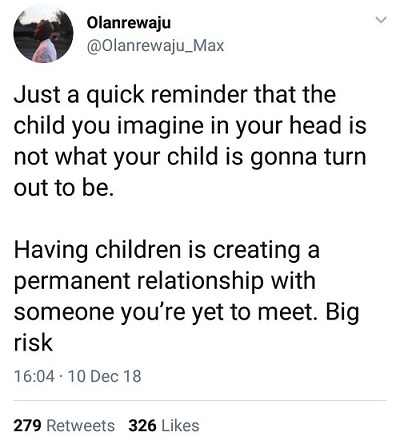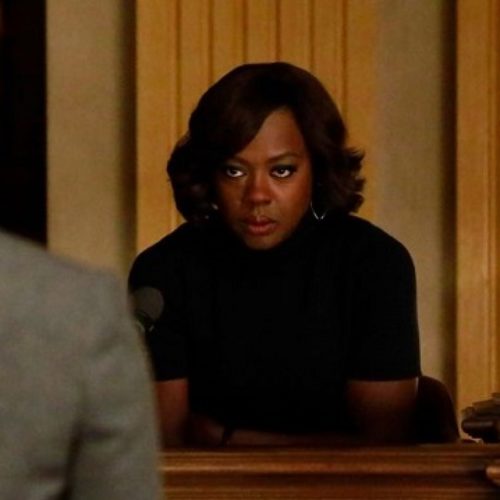Overcoming The Abuse And The Lessons From ‘The Miseducation Of Cameron Post’
I recently read a tweet where the user called out a common failing of parenting. He said: “Just a quick reminder that the child you imagine in your head is not what your child is gonna turn out to be. Having children is creating a permanent relationship with someone you’re yet to meet. Big risk.”
This is something that a lot of people who go into parenthood are largely unaware of. They imagine that they will make tiny humans who will become versions of themselves, extensions of who they are, to fulfil the hopes and dreams they themselves never get to actualize.
This kind of expectation often proves very damaging to one person: the child. Especially when this child does indeed grow up to become a person with a distinctively different personality from that which his/her parents had imagined for him.
I recently watched the LGBT movie, The Miseducation of Cameron Post, and I have to say, it is a movie with a gradualness that doesn’t prepare you for the punch it packs. Based on a young-adult novel by Emily Danforth, this movie deals with the thorny subject of gay conversion therapy. Its main subject is steeped in the denial of truth about adolescent sexuality – as is evident in how the “bad guys” are determined to not acknowledge the name “homosexuality”, choosing instead to call it “same-sex attraction”. Cameron, an 11th-grader played by Chloe Grace Moretz, is secretly involved with a girl named Coley; and when they are caught together, Cameron is sent away to God’s Promise, a boarding school that promises to “cure” her through therapy and prayer.
Expectedly, this movie deals with a wide range of issues that often plague the average adolescent who is growing up gay. The secrecy, the snatches of hidden romances, the scandalization that results from discovery, the self-loathing, the despising and denial projected from the environment, the struggle between staying true to what one knows is his truth and doing what it takes to live free from the pain that is caused by an embarrassed society. It all comes to bear in this film.
But I want to pay particular attention to the issue that I introduced this review with: the failure of parenting. There is a scene – the most powerful scene in the movie, in my opinion – that is preceded by the fact that one of the boarders (“disciples”, as the operators of God’s Promise like to refer to the children placed in their care), a boy named Mark, had been looking forward to going home at the end of the current semester, based on the premise that he’d been healed of his “gender confusion”. But it would seem his father had a change of heart and sent a letter to Mark, instructing him to stay on in the school and work on better correcting his effeminacy. Mark feels torn apart in this scene, a therapy session, where he spits out the words his father had written in his letter:
I am denying your request to return home at the end of this semester. You are still very feminine and this is a weakness I cannot have in my home.
And then, he goes on to quote verbatim a bible verse from the book of 2 Corinthians Chapter 12, a passage which he says is his father’s favorite:
7. There was given to me a thorn in the flesh, the messenger of Satan to buffet me, lest I should be exalted above measure.
8. For this thing I besought the Lord thrice, that it might depart from me.
9. And he said unto me: My grace is sufficient for thee, for my strength is made perfect in weakness. Most gladly therefor will I rather glory in my infirmities, that the power of Christ may rest upon me.
10. Therefore I take pleasure in infirmities, in reproaches, in necessities, in persecutions, in distresses for Christ’s sake: for when I am weak, then am I strong.
(That night, Mark gravely injures himself when he slashes his penis repeatedly with a razor and pours bleach on the injury.)
For when I am weak, then am I strong.
There is something evidently profound about that last phrase which he continues to repeat: For when I am weak, then am I strong.
I am not a theological scholar by any stretch of the imagination, but I feel like the poignancy of that scene is to point out something to the belabored homosexual person: your homosexuality, that which everyone likes to think of as your failing, your weakness, your wrongness – it is in fact your strength! Your goodness! Your rightness!
DO NOT BELIEVE ANY DIFFERENT!
And it is a very shameful world that we live in where parents are part of the coalition that seek to put down and destroy the homosexual child. It is a very distressing thing to think about that the people who you are supposed to love the most, to trust the most often turn out to be the ones who persecute you the most. Who tear you down. Who have a devastating access to your vulnerability because they brought you into this world. Mark’s father cruelly dismisses his son’s homosexuality and effeminacy as a weakness he won’t have in his home, and Mark becomes so wounded by that, he goes on to cause himself harm just to feel like he can measure up.
The Miseducation of Cameron Post asked a question when Cameron sits with a psychologist sent in to investigate the care of the boarding school following Mark’s incident. Cameron asks the psychologist, who comes close to dismissing her insinuation that they are suffering emotional abuse in the school: “How is programming people to hate themselves not emotional abuse?”
How indeed?
The worst enemy of a person growing up gay is already himself. He hates himself first. He loathes who he is aware he is becoming first. He has to struggle with the overwhelming need to languish in that pit of self-hate, to get into the light of self-acceptance. Some make it. Some never do. The point is: the person growing up gay is enough torture for himself. Add to that an environment – made up of family, friends, acquaintances and the society at large – that actively demonizes who he is, and it is any wonder some of us even get to the point where we are set in our acceptance of who we are. The abuse inflicted on the gay individual comes with one objective: to let you know that who you are is so despicable that you should either cease to exist or become someone else.
How does anyone ever overcome this kind of targeted abuse? Just how? This is why I get so much joy from observing LGBT Nigerians who live their lives with empathic ownership of their truths. Because I can imagine the scars they have acquired from that journey to overcome.
Written by Pink Panther
About author
You might also like
HELLO, FROM KITO DIARIES
It has been nearly two weeks since we last updated or showed any activity on any of our platforms here on Kito Diaries. A number of people have expressed worry
Deola’s Corner: Another Week Of TV (Edition 3)
DISCLAIMER: The following article contains spoilers from TV Shows of the past week, so if you haven’t SEEN the episodes of the week, and you detest spoilers, then I suggest
COMMANDER-IN-CHIEF (Part 2)
Previously on COMMANDER-IN-CHIEF… * “Please, Musa, just let me go home…” Musa stood there, looking at me, an unfathomable expression on his face. Then he placed his hands on his










5 Comments
Colossus
December 15, 05:08❤️❤️❤️
Dimkpa
December 15, 06:24I can’t like this post enough.
Pure, unadulterated wisdom.
I have always wondered why parents take credit for their child’s good traits even the ones that they don’t exhibit. They explain it by saying it must have been hidden inside. However, when they discover their child is gay, it becomes the child’s fault.
A good response might be:
“If you want anyone to blame, then blame yourself. Afterall, you gave birth to me and raised me. Everything I am, the way I look etc, is from you. Therefore, this is from you too.”
Avid fan
December 15, 11:01100%
J
December 15, 13:12I feel like writing a book after reading this post ?
Mitch
December 16, 15:29Thank you for this, Pink Panther!
This is all I need to answer that kid.